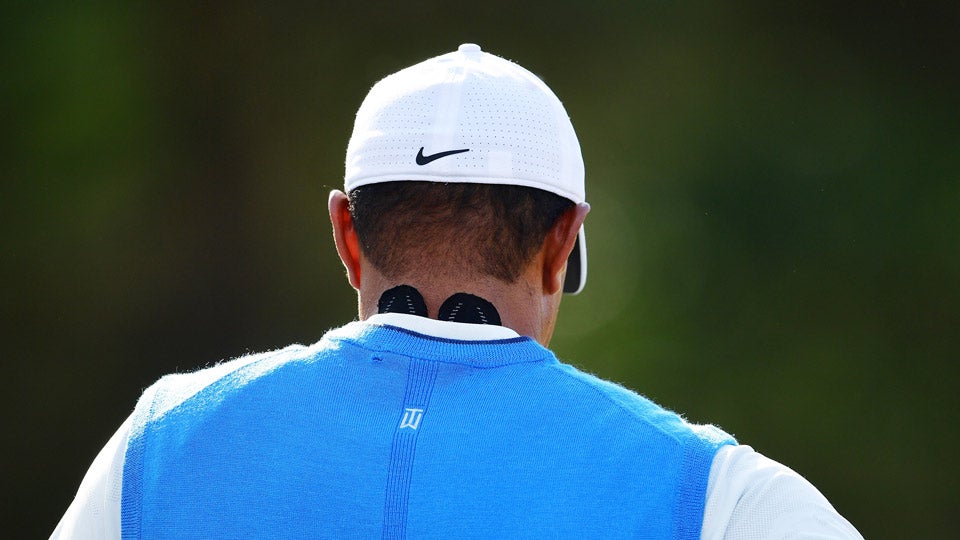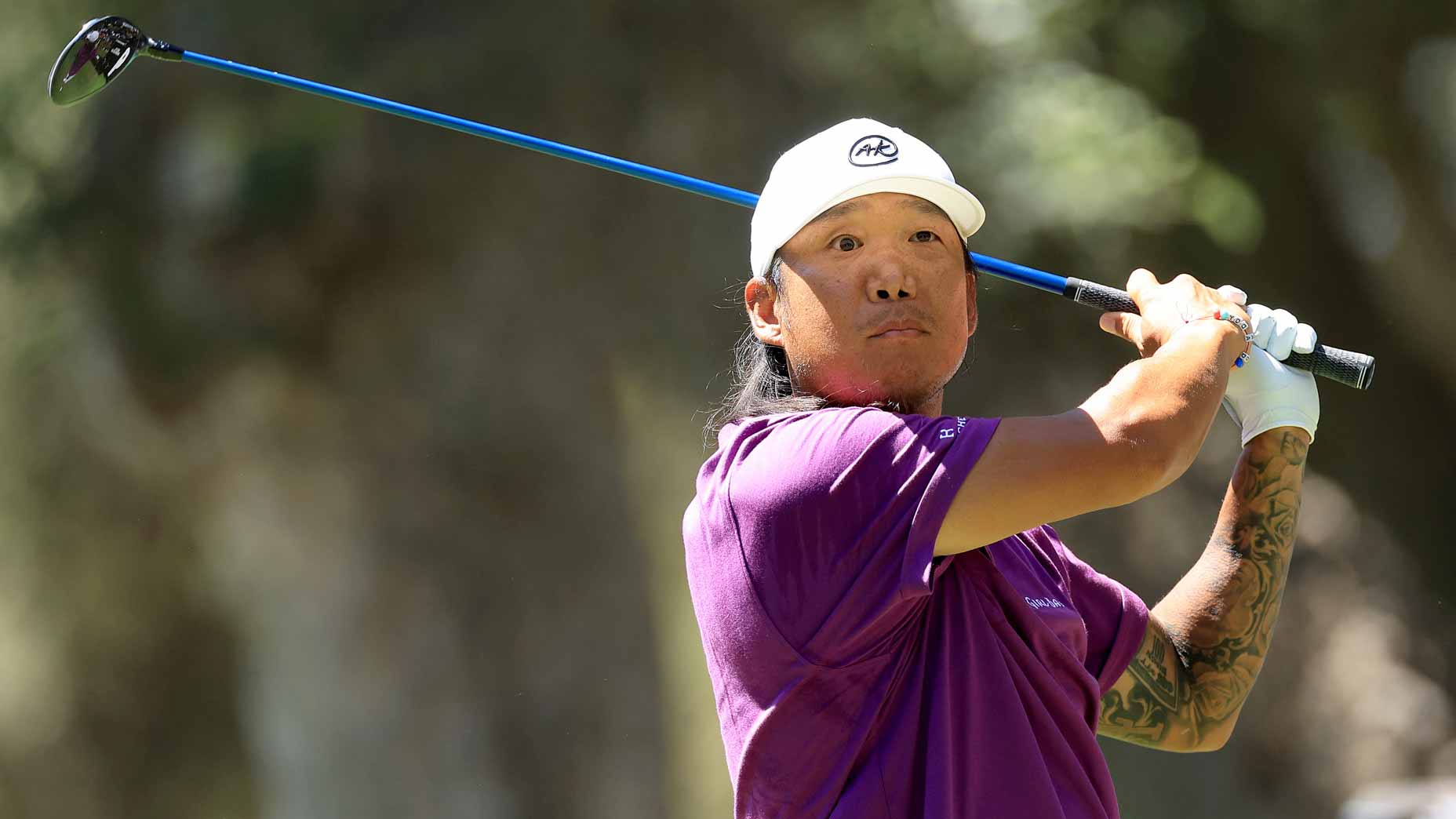To the list of questions swirling around Tiger Woods heading into the 2018 British Open — Would his putting touch return? How often would he pull driver? — another was added Thursday morning as Woods stepped to the first tee at Carnoustie: What was that stuff on his neck?
That stuff was KT Tape, also known as Kiniseo tape, a stretchy sports tape designed to relieve pain while supporting muscles, tendons and ligaments.
According to televised reports, Woods was dealing with a kink in his neck.
For a man who has undergone multiple back surgeries and captured a major championship on a broken leg, such a setback hardly ranked as a medical emergency.
Still, discomfort is discomfort, and Woods had opted to address it with a method used by many prominent athletes before.
The first iterations of KT Tape are said to have been developed in the 1970s by a Japanese chiropractor named Kenzo Kase. But the tape only started grabbing mainstream headlines after the 2008 Olympics, where beach volleyball star Kerri Walsh Jennings wore it on her way to winning gold.

A handful of companies now make stretchy athletic tapes intended to provide pain relief and muscular support.
The KT Tape that Woods wore Thursday is manufactured and sold by a Utah-based company of the same name. The tape comes in several versions, designed for different activities and different skin types. Russ Schleiden, KT Tape’s chief marketing officer, said that Woods was wearing KT Pro Black Tape, which is made of synthetic fiber and is designed to last four to seven days, longer than the three-day duration of the original cotton KT Tape.
Schleiden said he woke Thursday morning to messages from KT Tape CEO, Greg Venner, an avid golfer who was up early watching the action from Carnoustie.
The tape on Tiger’s neck had set the Twitter-sphere a-twitter.
Soon enough, KT Tape had posted an offer on its website: “25% off golfer’s flash sale.”
By mid-afternoon, Utah-time, Schleiden said, traffic on the site was up 300 percent.
How that translated into actual sales was too early to tell, Schleiden said, “because our sales normally peak after work and in the evening.” But based on past experiences with other high-profile athletes wearing KT Tape in big events (to wit: Tom Brady during the 2017 AFC Championship), Schleiden guesstimated that the Woods-driven publicity would prompt a 100 percent spike in sales.
As for the actual impact on Woods’ body, that’s another matter. Schleiden said the tape’s primary function was to provide “drug-free pain relief and support.” Applied correctly, he said, the tape “lifts and separates the tissue,” creating improved blood flow and helping the body to do its healing work.
Additional language on the company’s website notes that by lifting the skin, the tape decompresses “the layers of fascia, allowing for greater movement of lymphatic fluid which transports white blood cells throughout the body and removes waste products, cellular debris and bacteria.”
A asterisk-marked note on the same page reads: “Not proven clinically for all injuries.”
But the company does cite numerous clinical studies confirming the efficacy of KT Tape for specific purposes.
As with many medical claims, those made by KT Tape are the source of some skepticism.
Though a spokesperson at the Mayo Clinic Sports Medicine Center said that no one at the clinic would be able to comment on the tape, other medical experts have suggested that the tape’s main benefit may be psychological and play a positive role in an athlete’s mental preparation for an event.
In an article on WebMD.com, John Brewer, head of sport and exercise sciences and director of sport at the University of Bedfordshire, England, was quoted as saying, “The actual putting on of the tape sometimes is almost part of that ritual . . .It makes them feel ready for action.”
Only time will tell if tape will be part of the action during Tiger’s second round.






